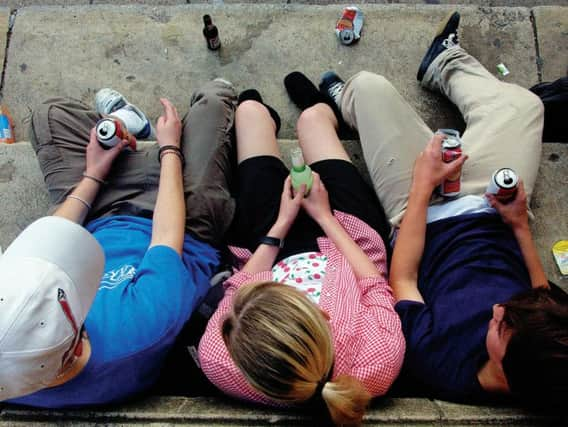Early age drinking in spotlight


Young people’s exposure to slick alcohol marketing against mounting evidence of the risks related to adolescent drinking, is among the key topics to be tackled by European experts at a major conference.
There is concern that young people are in the grip of a perfect storm of factors led by shrewd marketing campaigns, which is putting some in danger of a lifelong negative relationship with alcohol.
Representatives from organisations which specialise in alcohol use will join government ministers and officials, academics and authors to discuss the issues facing young people along with a range of other topics at the 8th European Alcohol Policy Conference at the Royal College of Physicians Edinburgh (RCPE) in November.
The Enlightened Alcohol Policy for the 21st Century conference draws on the city’s tradition for evidence-based forward-thinking rooted in the age of Enlightenment, and is aimed at stimulating debate and policies linked to a variety of modern alcohol-linked problems.
It is expected to conclude with a call for meaningful collaborative action across nations to challenge the impact of alcohol in six key areas: health, justice, gender, economy, youth and recovery.
The two-day conference, which has been organised by SHAAP (Scottish Health Action on Alcohol Problems) and is supported by the Scottish Government, will take place on 20 and 21 November.
Around 300 delegates are expected at the RCPE in Queen Street, for a series of presentations and discussions.
One element of concern is understood to be shrewd marketing campaigns and sports-related sponsorship which it is feared position alcohol in young minds as fun and exciting while skimming over the potential risks.
SHAAP director Dr Eric Carlin, whose studies have included the impact of alcohol on young people, said they are confronted by a combination of factors which can have a detrimental impact on their health and future relationship with alcohol.
“Young people are in a world where alcohol is cheaper than it’s ever been, more heavily marketed and more available,” he said.
“There are lots of clever messages and issues around 24-hour marketing of alcohol, while there is good evidence that the brain is damaged permanently by early drinking.
“If someone starts drinking early, they are far more likely to be drinking in problem terms at a later stage, while those who delay experimenting with alcohol until older tend to go on to dip in and out of alcohol.”
He said speakers at the conference will share knowledge and ideas drawn from their experiences of young people and alcohol.
The speakers in the youth session include Newcastle University sociologist Dr Tracy Shildrick, whose research has focused on issues related to young people, poverty and social exclusion, and Lithuanian doctor and health activist Lukas Galkus, who is president of the Alcohol Policy Youth Network and a board member of Eurocare, the European Alcohol Policy Alliance, which is co-organising the conference.
Dr Carlin added: “Rather than looking at young people as a problem, the conference provides an opportunity to look at solutions and ideas as to how we can change things.
“Alcohol is a global business and we need to collaborate with other countries across Europe.
“The conference will include stimulating discussion and highlight the international impact of alcohol-related harms, including how these are related to inadequate regulation at national and international levels. The alcohol industry has had undue influence at EU level.
“This conference will provide an opportunity to look at solutions and ideas as to how we can change things.”
At the last conference in Slovenia in 2016, First Minister Nicola Sturgeon provided a video address to accept the European Award for Reducing Alcohol Harms (EARAH) in recognition of the Scottish Government’s introduction of a range of evidence-based measures to tackle problem drinking.
The measures include minimum unit pricing, which passed into Scots law in 2012 and will finally be implemented in May, after a six-year legal battle conducted in the UK and in Europe.
The 2018 EARAH will be announced at this year’s conference which is sponsored by Alcohol Focus Scotland, the Institute of Alcohol Studies and NHS Scotland.
The 8th European Alcohol Policy Conference will take place at the Royal College of Physicians in Edinburgh on 20 and 21 November. To find out more, visit www.8eapc.eu